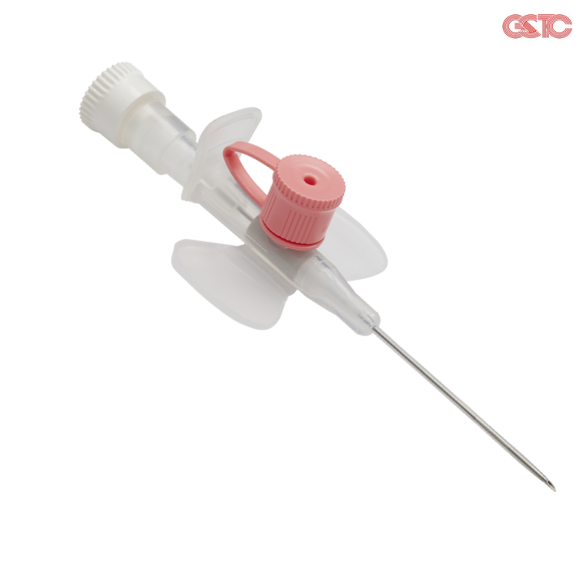How Does Lifestyle Influence Cancer Risk and Recovery?
Cancer is a complex and multifaceted disease influenced by a myriad of factors, including genetics, environmental exposures, and lifestyle choices. Among these, lifestyle plays a significant role in both the risk of developing cancer and the recovery process after a diagnosis. This article delves into how lifestyle choices such as diet, physical activity, smoking, alcohol consumption, and stress management impact cancer risk and recovery. Additionally, we will explore the importance of seeking advice from an oncologist in Hyderabad to tailor lifestyle modifications for optimal cancer prevention and recovery.

Understanding the Role of Lifestyle in Cancer Risk
- Diet and Nutrition
- Balanced Diet: A diet rich in fruits, vegetables, whole grains, and lean proteins is crucial for reducing cancer risk. These foods provide essential nutrients and antioxidants that protect cells from damage.
- Processed Foods and Red Meat: High consumption of processed foods and red meat has been linked to an increased risk of cancers such as colorectal cancer. Limiting these foods and opting for healthier alternatives can lower cancer risk.
- Obesity: Being overweight or obese is associated with a higher risk of several cancers, including breast, colorectal, and pancreatic cancers. Maintaining a healthy weight through a balanced diet and regular exercise is essential for cancer prevention.
- Physical Activity
- Regular Exercise: Regular physical activity helps maintain a healthy weight, improves immune function, and reduces inflammation, all contributing to lower cancer risk. Aim for at least 150 minutes of moderate or 75 minutes of vigorous-intensity exercise per week.
- Sedentary Lifestyle: Prolonged periods of inactivity can increase the risk of certain cancers. Incorporating physical activity into daily routines, such as walking, cycling, or household chores, can help mitigate this risk.
- Smoking and Tobacco Use
- Tobacco and Cancer: Smoking is the leading cause of lung cancer and is also linked to several other cancers, including mouth, throat, pancreas, bladder, and kidney cancers. Quitting smoking significantly reduces cancer risk and improves overall health.
- Secondhand Smoke: Exposure to secondhand smoke also increases cancer risk. Avoiding environments where smoking is prevalent and advocating for smoke-free policies can protect non-smokers from these risks.
- Alcohol Consumption
- Alcohol and Cancer: Excessive alcohol consumption is associated with an increased risk of cancers such as breast, liver, mouth, throat, and oesophagus. Limiting alcohol intake to moderate levels (up to one drink per day for women and up to two drinks per day for men) can reduce cancer risk.
- Stress and Mental Health
- Chronic Stress: Chronic stress can weaken the immune system and contribute to behaviours that increase cancer risk, such as poor diet, smoking, and excessive alcohol consumption. Managing stress through mindfulness, meditation, and physical activity is important for overall health.
- Mental Health Support: Seeking support for mental health issues, whether through therapy, support groups, or other resources, can help individuals manage stress and maintain healthier lifestyles.
Lifestyle Choices and Cancer Recovery
- Diet and Nutrition During Recovery
- Nutrient-Dense Foods: Consuming various nutrients helps support the body’s recovery process. Foods rich in vitamins, minerals, and antioxidants can help repair tissue, boost the immune system, and improve overall well-being.
- Specific Nutritional Needs: Cancer treatments such as chemotherapy and radiation can affect appetite and digestion. Working with a dietitian or oncologist in Hyderabad to address specific nutritional needs and manage side effects is crucial for recovery.
- Physical Activity and Rehabilitation
- Exercise Benefits: Regular physical activity during and after cancer treatment can improve physical function, reduce fatigue, and enhance quality of life. It is important to tailor exercise programs to individual capabilities and treatment stages.
- Rehabilitation Programs: Participating in rehabilitation programs designed for cancer patients can help rebuild strength, improve mobility, and address specific recovery goals.
- Avoiding Tobacco and Alcohol
- Continued Abstinence: For cancer survivors, continued abstinence from tobacco and alcohol is essential to reduce the risk of recurrence and secondary cancers. Support programs and counselling can assist in maintaining these lifestyle changes.
- Stress Management and Mental Health
- Coping Strategies: Effective stress management strategies, such as yoga, meditation, and breathing exercises, can help cancer survivors cope with the emotional and physical challenges of recovery.
- Support Networks: Engaging with support networks, including family, friends, and cancer support groups, provides emotional support and practical advice for managing life after cancer.
Conclusion
Lifestyle choices play a critical role in both the risk of developing cancer and the recovery process after a cancer diagnosis. Adopting a healthy diet, engaging in regular physical activity, avoiding tobacco and excessive alcohol, and managing stress are all vital components of cancer prevention and recovery. Consulting an oncologist in Hyderabad can provide personalised guidance and support for making these lifestyle changes, ultimately improving outcomes and enhancing the quality of life for cancer patients. By prioritising healthy lifestyle choices and seeking professional advice, individuals can take proactive steps to reduce their cancer risk and support their journey to recovery.
What's Your Reaction?










![Blog Submission Sites 2024 [High DA]](https://blognow.co.in/uploads/images/202306/image_100x75_6494a03eaff5e.jpg)
![Article Submission Sites 2023 [High DA & PA]](https://blognow.co.in/uploads/images/202307/image_100x75_64c4181f17036.jpg)
![Classified Submission Sites 2023 [High DA & PR]](https://blognow.co.in/uploads/images/202306/image_100x75_649dcd5260808.jpg)




![Article Submission Sites 2023 [High DA & PA]](https://blognow.co.in/uploads/images/202307/image_750x415_64c4181f08ed5.jpg)
![Classified Submission Sites 2023 [High DA & PR]](https://blognow.co.in/uploads/images/202306/image_750x415_649dcd5247eeb.jpg)
![Blog Submission Sites 2024 [High DA]](https://blognow.co.in/uploads/images/202306/image_750x415_6494a03e96bfa.jpg)